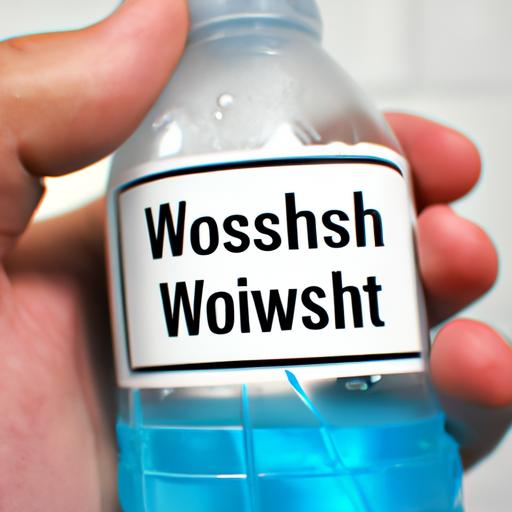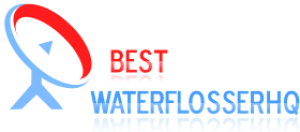
Discover the benefits of using Mouthwash for wisdom teeth extraction. Learn how it promotes oral health, reduces infection risk, and aids speedy recovery.
When it comes to wisdom teeth extraction, proper post-operative care plays a crucial role in ensuring a smooth recovery and maintaining oral health. One essential component of this care routine is the use of mouthwash. In this article, we will explore the benefits of using mouthwash after wisdom teeth extraction and provide recommendations for selecting the right type of mouthwash for optimal results.

Using mouthwash after wisdom teeth extraction provides numerous benefits
Benefits of Using Mouthwash After Wisdom Teeth Extraction
Reducing the Risk of Infection and Inflammation
After wisdom teeth removal, the extraction sites are prone to bacterial growth, which can lead to infections and inflammation. Mouthwash, particularly antiseptic varieties, can help prevent these issues by killing bacteria and reducing the risk of infection. With regular use, mouthwash creates an environment that promotes proper healing and minimizes the chances of complications.
Alleviating Discomfort and Pain
Wisdom teeth extraction often involves discomfort and pain during the recovery period. Mouthwash, especially those containing analgesic properties, can help alleviate these symptoms. Rinsing with a suitable mouthwash can provide a soothing effect, reducing pain and promoting a more comfortable healing experience.
Promoting Faster Healing and Recovery
Using mouthwash after wisdom teeth extraction can expedite the healing process. Mouthwashes with antibacterial and anti-inflammatory properties help keep the extraction sites clean, reduce swelling, and promote faster tissue regeneration. By incorporating mouthwash into your post-extraction routine, you can potentially shorten the recovery time and get back to your normal activities sooner.
Maintaining Overall Oral Hygiene
Wisdom teeth extraction can temporarily affect your usual oral hygiene routine, making it challenging to brush and floss properly. Mouthwash serves as an excellent supplementary tool during this period, ensuring that you maintain good oral hygiene. It reaches areas that may be difficult to clean with a toothbrush, providing a thorough cleanse and freshening your breath.
Types of Mouthwash Suitable for Wisdom Teeth Extraction
To reap the maximum benefits, it’s crucial to choose the right type of mouthwash for your post-extraction care. Here are some options to consider:
Antiseptic Mouthwash for Preventing Infections
Antiseptic mouthwashes, such as those containing chlorhexidine, are effective in killing bacteria and reducing the risk of infections. They are commonly recommended by dentists for post-extraction care due to their ability to promote oral health and prevent complications.

Alcohol-Free Mouthwash for Individuals with Sensitivity
For those with sensitivity to alcohol or those who find it too harsh on their gums, alcohol-free mouthwashes are a suitable alternative. These gentler formulations offer similar benefits, such as reducing bacteria and promoting healing, without causing any discomfort.
Fluoride Mouthwash for Strengthening Teeth and Preventing Decay
Fluoride mouthwashes are beneficial for maintaining oral health after wisdom teeth extraction. They help strengthen the teeth, remineralize enamel, and prevent cavities. Incorporating fluoride mouthwash into your routine can contribute to long-term dental well-being.
Chlorhexidine Mouthwash for Controlling Bacterial Growth
Chlorhexidine mouthwashes are highly effective in controlling bacterial growth and reducing the risk of infections. They are often prescribed by dental professionals for post-extraction care and provide an added layer of protection against potential complications.
Proper Usage and Recommendations for Mouthwash After Wisdom Teeth Extraction
To ensure maximum effectiveness and safety, it’s essential to use mouthwash correctly. Here are some guidelines to follow:
-
Read and Follow Instructions: Carefully read the label instructions of the specific mouthwash you choose. Adhere to the recommended dosage, frequency, and duration of use.
-
Timing: Wait at least 24 hours after wisdom teeth extraction before using mouthwash. This allows the initial blood clot to form and promotes proper healing. Once you start using mouthwash, rinse with it after meals and before bedtime.
-
Gentle Rinsing: Gently swish the mouthwash around your mouth for the recommended duration (usually around 30 seconds to 1 minute). Avoid vigorous rinsing or spitting forcefully, as this may dislodge the blood clot and hinder healing.
-
Avoid Eating or Drinking: Refrain from eating or drinking for at least 30 minutes after using mouthwash. This allows the active ingredients to work effectively and enhances the benefits.
-
Precautions and Side Effects: Some mouthwashes may cause temporary side effects like staining of the teeth, altered taste, or dry mouth. If you experience any adverse effects, consult your dentist or oral surgeon for guidance.
It’s important to consult your dental professional for personalized recommendations tailored to your specific needs and circumstances.
Conclusion
Mouthwash is a valuable addition to your oral care routine after wisdom teeth extraction. By selecting the right type of mouthwash and using it correctly, you can reduce the risk of infections, alleviate discomfort, promote faster healing, and maintain overall oral hygiene.
Remember, post-extraction care is crucial for a smooth recovery, and incorporating mouthwash into your routine is a simple yet effective step towards optimal oral health. So, choose the appropriate mouthwash, follow the recommended guidelines, and enjoy a speedy and hassle-free healing process.
For more information on oral hygiene and dental care, visit BestWaterFlosserHQ, a reliable resource dedicated to providing helpful insights and recommendations.





